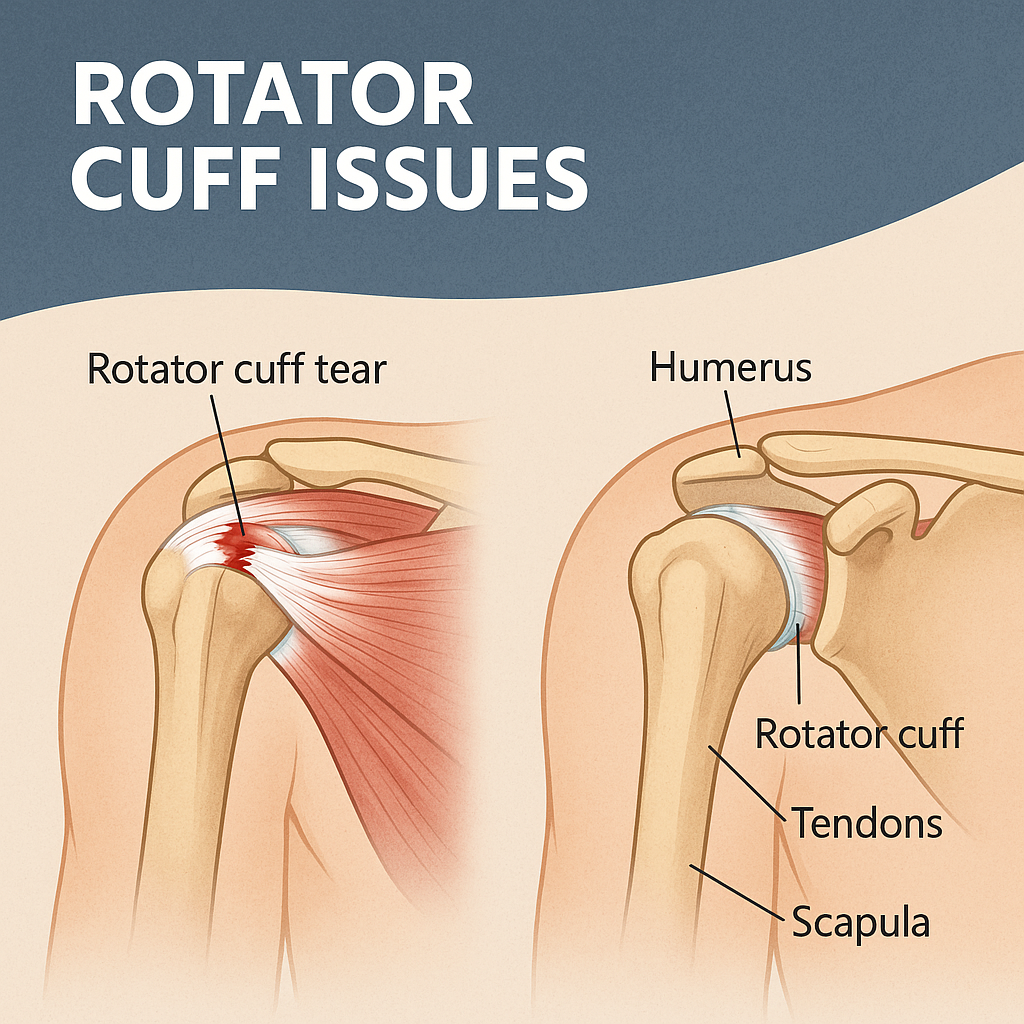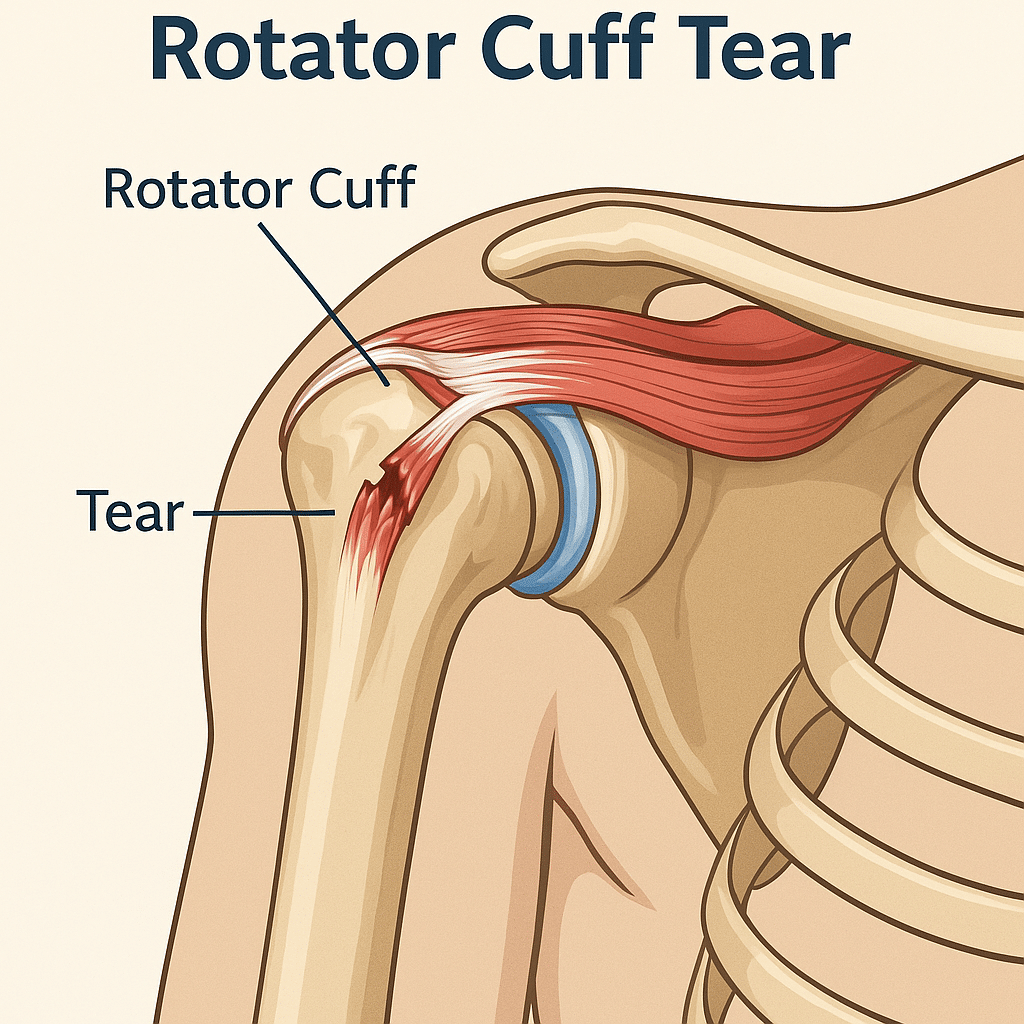
Your shoulder is one of the most flexible joints in your body—and one of the most relied on. That flexibility comes from the rotator cuff, a group of four muscles and tendons that keep the shoulder stable and allow you to lift, reach, and rotate your arm. Over time, or after an injury, these tendons can become irritated, frayed, or even torn. This type of injury can make everyday tasks—like reaching into a cabinet, brushing your hair, or sleeping on your side—painful and frustrating.
Rotator cuff issues can develop gradually from repetitive use, especially in sports or jobs that involve overhead motion, or they can happen suddenly after a fall or heavy lift.

Rotator cuff tear symptoms often include:
While some rotator cuff problems are mild and improve with rest, physical therapy, and anti-inflammatory treatments, others involve more significant damage that may require surgery to restore strength and function.
At all of our OrthoNJ divisions, we take a patient-first approach. That means we don’t rush to the operating room—we evaluate your injury, your goals, and your lifestyle to decide on the best course of action.
In many cases, non-surgical treatments work well. But when surgery is the most effective way to relieve pain and restore mobility, our fellowship-trained, board-certified shoulder specialists use the latest techniques to get you safely back to the activities you love.
OrthoNJ is different from your typical medical provider. Unlike many in the industry, we prioritize patient care over profits. Our six divisions work collaboratively to ensure the best outcomes for our patients. We believe in the "Power to Put Patients First," our doctors and divisional partners strive to uphold this commitment to our patients in every aspect of our medical care.
Before surgery, you’ll work closely with your orthopaedic surgeon to make sure this is the right path for your specific case.
You’ll likely:
If you’re a smoker or have underlying conditions (like diabetes), optimizing your health before having rotator cuff surgery can improve your healing and outcomes.
Rotator cuff repair is usually performed arthroscopically. That means a tiny camera is inserted through small incisions to guide the surgery. Miniature surgical tools are used to remove damaged tissue and clean up tendon edges.
Then the torn tendon is anchored back to the bone using small implants (called "suture anchors"). These are typically made of materials that absorb and do not have to be removed, or metal and are permanent fixtures that help the tendon reattach securely.
For larger or more complex tears, your surgeon might:
Surgery generally lasts 1 to 2 hours, and most patients go home the same day.
This is where the real work begins, and it’s crucial to set expectations.
Important: Everyone heals differently. Your body’s biology, the size of the tear, your age, and your commitment to physical therapy all play a role.
Yes—initial discomfort is expected. But nerve blocks and medications make recovery manageable. Most patients say the first week is the hardest, then it improves steadily.
Yes. Without it, even a perfectly repaired tendon can stiffen or re-tear. Therapy is the key to regaining range of motion, strength, and confidence.
While rotator cuff surgery is very safe, like any surgery, it carries risks such as:
Most people return to near-normal function and have less pain than before surgery. Some may have lasting limitations, especially with very large or chronic tears. Your surgeon will discuss expected outcomes based on your personal case.
Rotator cuff surgery is not a shortcut to healing—it’s a structured journey with many checkpoints. At ONJ, we’re not just focused on doing the surgery. We’re focused on getting you back to doing what you love—stronger, smarter, and fully supported by world-class orthopaedic specialists.
You don't have to stay in pain. Contact one of our ONJ divisions to schedule an appointment.

This treatment info is for informational purposes only. Treatment and recovery vary person to person, and you should consult with your treating physician and team for details on your treatment and recovery process.